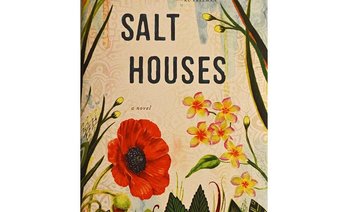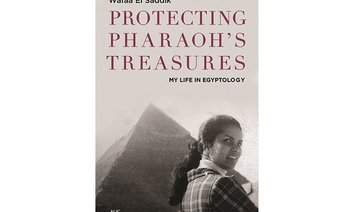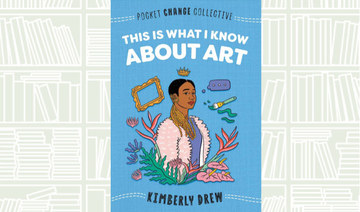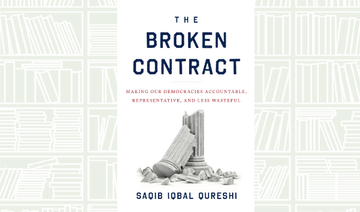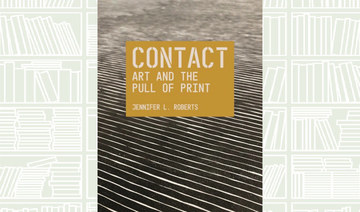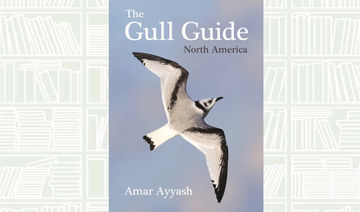For reasons unforeseen at the time of writing, “Iraq the Cost of War” was not released in 2005 as planned. That same year, the British Secretary of State for Foreign and Commonwealth Affairs Jack Straw asked author Jeremy Greenstock to delay the publication until the ministers concerned left their posts. This was followed by the Iraq Inquiry, a British Public inquiry into the nation’s role in the Iraq War. After a seven-year investigation, Sir John Chilcot delivered his findings in 2016 and Greenstock decided the time had finally come to publish his account.
The book, which has just been published in paperback form, presents an in-depth understanding, in narrative form, of what really went on behind the scenes at the UN and in Baghdad. “I believe there is still room for a story to be told that sets in live context the decisions taken and the mistakes committed, and perhaps makes more intelligible the swirl of conflicting considerations that weighed on political leaders at the time,” Greenstock writes. For that reason, he kept the original text.
Greenstock, as UK permanent representative to the United Nations ambassador in New York, shows us the intricacies of foreign policy decision making in the lead-up to the Iraq invasion. And then, as special envoy for Iraq, the UK’s highest authority on the ground, he was a witness to the acute lack of post-war preparation in Iraq. First and foremost, this seasoned diplomat asserts a truth that runs like a mantra throughout the book — “the story of Iraq is the story of the application of American power.”
The United States’ involvement in Iraq comes as no surprise. Greenstock acknowledges that as a young diplomat he discovered that the US has two preserves, superpower politics and the Middle East peace process. Whereas the diplomatic world recognizes the French and the British inherited privileged relations with the Middle East that no other foreigners possessed, the American administration has never hidden its distaste for the European colonial past.
Another important point is that no political strategy can be discussed in Iraq without bringing up the Palestinian question. Iraqi people, known for their nationalistic feelings, would feel hostile to an American presence in their country if the US would not contribute to improving the Palestine situation, according to the book.
However, there were no indications that a political change in Iraq would trigger change in the Middle East and the road toward Arab-Israeli peace does not run through Baghdad. However, Greenstock had sensed from the beginning that the outcome in Iraq would exert a broader influence on the region.
If we go back in time, we discover that the harshest sanctions ever imposed against a state were adopted against Iraq under UN Resolution 687 until full reparations for the damage done to Kuwait were repaid and all Iraqi weapons of mass destruction (WMD) had been accounted for.
General sanctions tend to affect the population at large, so a government takes measures to help its people avoid harm. Saddam Hussein did exactly the opposite, he used his people’s suffering to condemn the UN’s resolution. As a result, the Iraqi population suffered a lot from food deprivation, especially the children, and they blamed the US.
The big question at this point is why did Hussein risk a devastating invasion of his country by lying about his actual weapons capacity? Did he want to give the impression that he was a champion of Arab causes? By projecting an image of toughness and a will not to comprise, he wanted the world to know that he remained a challenge to the superpowers and he played a role on the world stage, perhaps. “There is not a shadow of doubt whatsoever that Iraq had long harbored ambitions to develop a WMD capability and had actually used chemical weapons in the 1980s. Saddam Hussein could have used chemical weapons in 1991, but chose not to,” writes Greenstock.
The problem with Hussein is that nobody knew what was going on in his mind. Nobody knew whether he was lying or telling the truth and this explains why there was not a greater opposition to pre-emptive action in the United Nations Security Council and elsewhere. The French and the Russians believed the inspectors had not been given enough time and they also hoped that more time would get the Iraqi leader to admit the truth. The French and Russians were also not the only ones to warn the US not to flout international order and not to initiate an invasion of Iraq without a prior discussion in the Security Council.
Tony Blair’s speech on March 18, 2003, one of the best speeches of his political career, sealed the decision to intervene in Iraq. The argument was based on the unfounded assumption that Iraq had hidden stockpiles of WMDs. “That does not alter the fact that Iraq was in breach of UN resolutions. But it does magnify the accusation that the punishment was out of proportion to the offense,” writes Greenstock.
No one anticipated that the Iraqi forces would be defeated so easily. The coalition led by the US did not do much better. The American and British authorities displayed an inability to control — “we lost the initiative in the early weeks when we failed to secure the country. The new Iraq has not yet recovered from that mistake,” writes Greenstock. President George W. Bush also never allocated the funds and the resources needed to secure a successful future for the Iraqi people. The US failure in Iraq reminds us of how the Americans handled the Russians after the Cold War — the apparent lack of diplomacy triggered feelings of resentment and humiliation, which paved the way for Vladimir Putin to take power and reestablish Russia as a superpower on the world map.
Greenstock wrote the epilogue to this book just before it was submitted for publication. Eleven years had passed and the world had changed, presenting an opportunity to measure the impact of the war in Iraq on the countries involved in it. Iraqis have paid a high price for the promise of peace and freedom, which remains elusive, and even its future within its UN-approved borders is not yet secured.
Greenstock also believes that Blair did not respect the domestic interests of the British. “I think that Blair going with the Americans on Iraq has, in some ways, done more damage to the UK than (former British Prime Minister Harold) Wilson not going with the Americans in Vietnam,” he said in an interview with the Huffington Post.
Greenstock is very critical of American mistakes, saying: “To most people on the planet, it is unacceptable for the US on its own to interpret international legitimacy,” but he concludes that “a world without an America in top form is always going to face a poorer and more threatened future.”
Book Review: Recounting the cost of war in Iraq
Book Review: Recounting the cost of war in Iraq
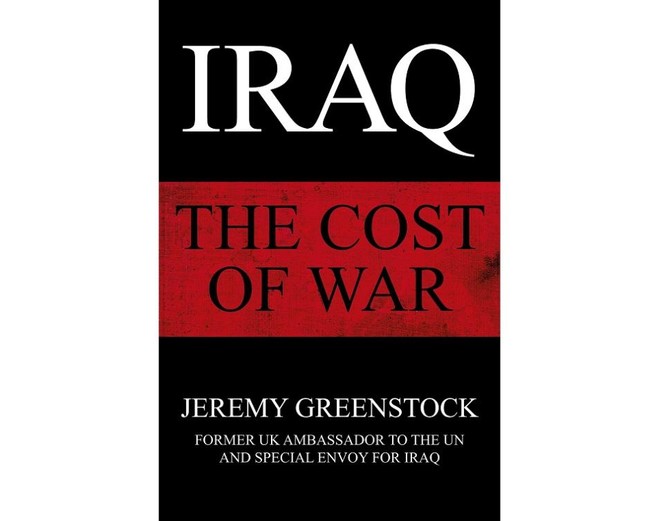
What We Are Reading Today: ‘The Ant Collective’

Author: ARMIN SHCIEB
Ants share a vibrant and complex communal life and remarkable abilities to communicate with each other.
“The Ant Collective” presents the world of ants as you have never seen it before, using hyperrealistic, computer-generated imagery that shows 3D-like views of activities inside and outside a thriving nest of red wood ants.
With chapters on topics ranging from the establishment and construction of the nest to the birth of an ant trail and the relocation of a colony, this one-of-a-kind book brilliantly integrates informative descriptions with the illustrations.
What We Are Reading Today: The Shield of Achilles

Author: W. H. Auden Edited by Alan Jacobs
“The Shield of Achilles,” which won the National Book Award in 1956, may well be W. H. Auden’s most important, intricately designed, and unified book of poetry. In addition to its famous title poem, which reimagines Achilles’s shield for the modern age, when war and heroism have changed beyond recognition, the book also includes two sequences—“Bucolics” and “Horae Canonicae”—that Auden believed to be among his most significant work.
Featuring an authoritative text and an introduction and notes by Alan Jacobs, this volume brings Auden’s collection back into print for the first time in decades and offers the only critical edition of the work.
As Jacobs writes in the introduction, Auden’s collection “is the boldest and most intellectually assured work of his career, an achievement that has not been sufficiently acknowledged.” Describing the book’s formal qualities and careful structure, Jacobs shows why The Shield of Achilles should be seen as one of Auden’s most central poetic statements—a richly imaginative, beautifully envisioned account of what it means to live, as human beings do, simultaneously in nature and in history.
Book Review: ‘I Used to Have a Plan: But Life Had Other Ideas’ by Alessandra Olanow

- The author’s storytelling talent and introspective reflections on her personal journey make this book an excellent option for people searching for inspiration and a deeper understanding of life and human experience
“I Used to Have a Plan: But Life Had Other Ideas” is a captivating book by New York-based author Alessandra Olanow. Her book was published in 2020 and talks about a self-discovery journey and resilience.
Through her beautifully crafted stories and storytelling, she takes readers on a journey of self-discovery and invites them to learn through the unexpected experiences that shape their lives.
Through the pages of this book, Olanow shares her personal experiences of how she managed to overcome life’s unpredictable circumstances. With her honesty and interesting narrative, she speaks about the lessons learned on her life journey. From her professional experiences to her personal relationships, Olanow’s story exudes authenticity and reminds the reader that life rarely follows a straight path, which makes life realistic and beautiful at the same time.
One of the strengths of Olanow’s book is her ability to describe the depth of emotions and how she talks about her personal struggles during some of the hardest moments in her life.
She expresses her opinions and reflections on life’s challenges by encouraging the readers to reflect as well on their own journeys, motivating them to overcome their obstacles too.
Moreover, regardless of the ups and downs she encountered, she explained how she maintained a sense of hope and resilience.
Additionally, the book is enriched with evocative descriptions of the places the author has lived and traveled to. Whether she was exploring the busy streets in one city or immersing herself in the serenity of nature, her ability to paint a colorful picture through her words takes readers to these places, allowing them to travel with her in thoughts.
Overall, this book is interesting and inspiring at the same time. It reminds readers of the beauty and resilience of accepting life’s unexpected turns and celebrating the beautiful moments too.
The author’s storytelling talent and introspective reflections on her personal journey make this book an excellent option for people searching for inspiration and a deeper understanding of life and human experience.
What We Are Reading Today: ‘Molds, Mushrooms, and Medicines’ by Nicholas P. Money
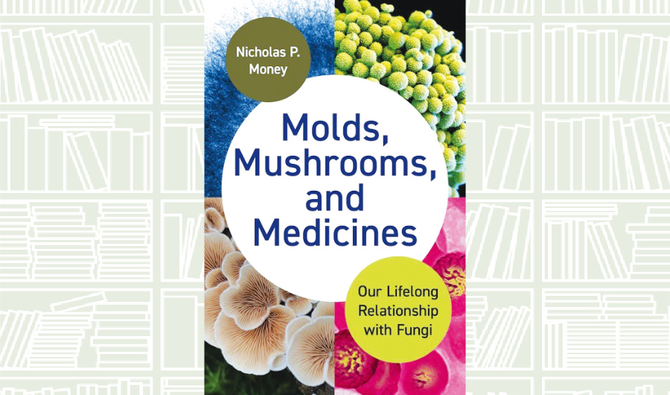
From beneficial yeasts that aid digestion to toxic molds that cause disease, we are constantly navigating a world filled with fungi. “Molds, Mushrooms, and Medicines” explores the amazing ways fungi interact with our bodies, showing how our health and well-being depend on an immense ecosystem of yeasts and molds inside and all around us. Nicholas Money takes readers on a guided tour of a marvelous unseen realm, describing how our immune systems are engaged in continuous conversation with the teeming mycobiome inside the body, and how we can fall prey to serious and even life-threatening infections when this peaceful coexistence is disturbed.
What We Are Reading Today: ‘A Tear and A Smile’ by Khalil Gibran
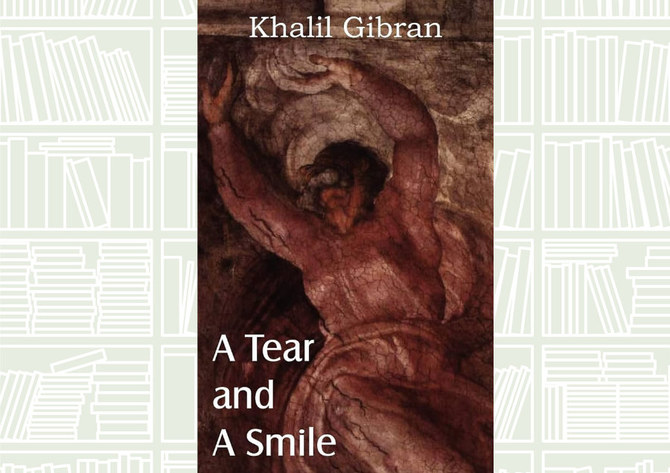
Khalil Gibran’s “A Tear and A Smile” is a collection of poems and reflections first published in 1914. The book explores the contrasting aspects of life, such as joy and sorrow, pleasure and pain, as well as the complexities of human emotions.
Gibran’s compelling lyrical and philosophical style shines as he contemplates the beauty and challenges of life including love, loss and longing.
He invites readers to reflect on the intricacies of their own emotions and experiences.
The collection is divided into two sections, “A Tear” and “A Smile,” symbolizing the duality of human existence.
In “A Tear,” Gibran delves into the sorrows and struggles of life, exploring pain, loss, and the transient nature of human existence. Through his poignant and evocative language, he captures the universal experience of human suffering.
In contrast, “A Smile” focuses on the brighter aspects of life. Gibran celebrates joy, love, and the beauty found in everyday moments.
He emphasizes the importance of gratitude, kindness, and embracing life’s blessings. The poems in this section inspire hope and encourage the reader to find solace and happiness in the simple pleasures of life.
“I would not exchange the sorrows of my heart for the joys of the multitude. And I would not have the tears that sadness makes to flow from my every part turn into laughter. I would that my life remain a tear and a smile,” he writes.


